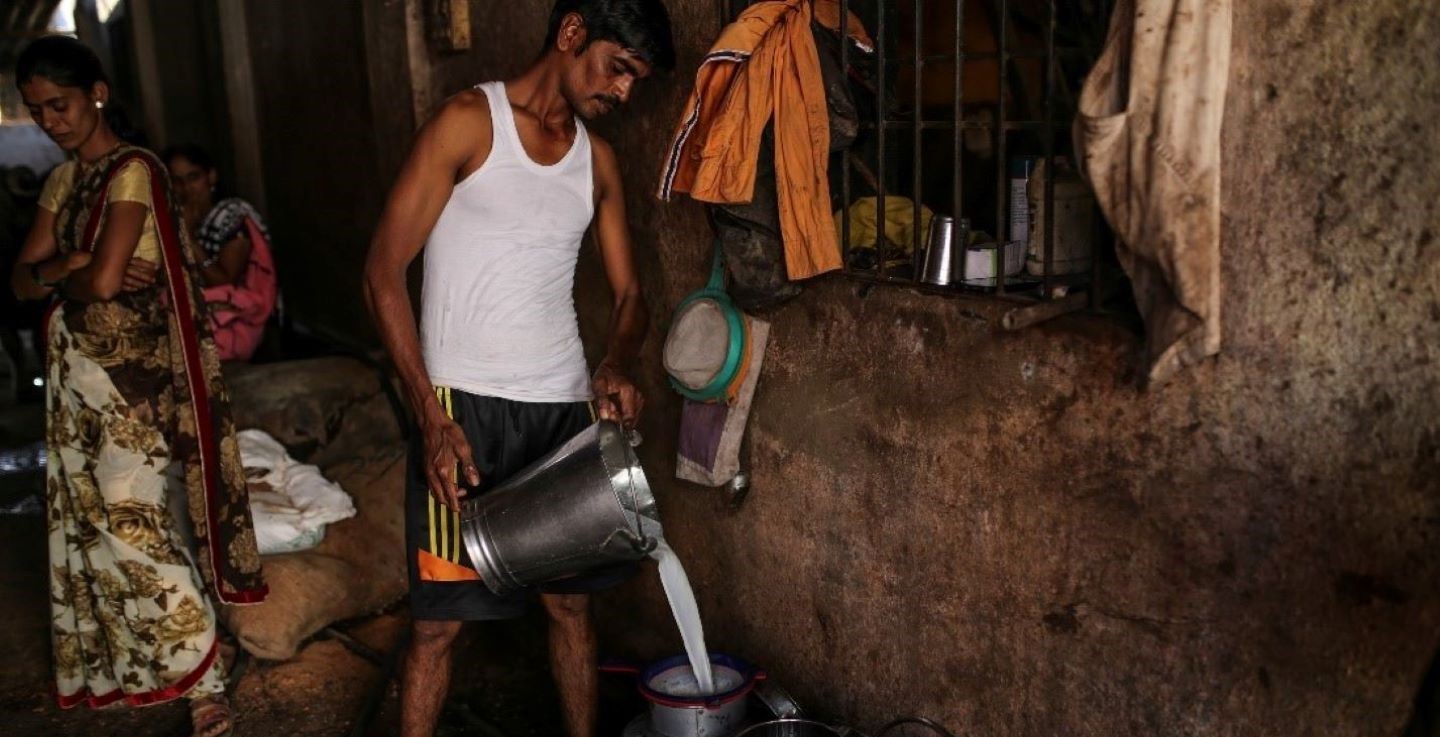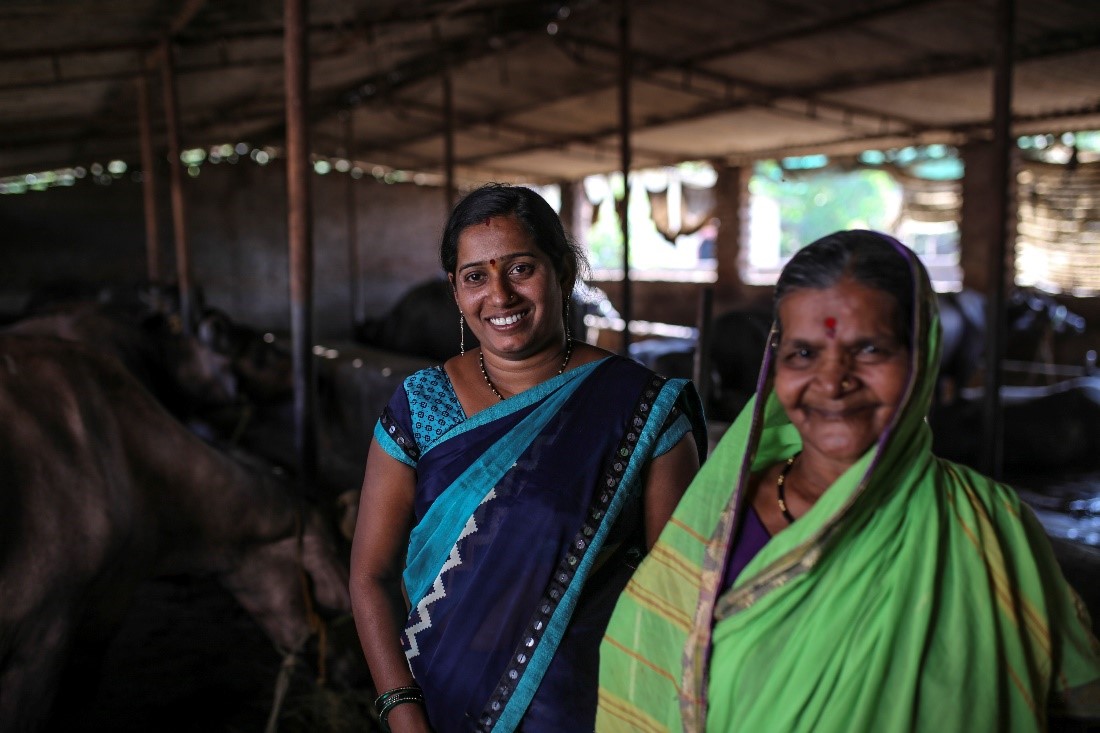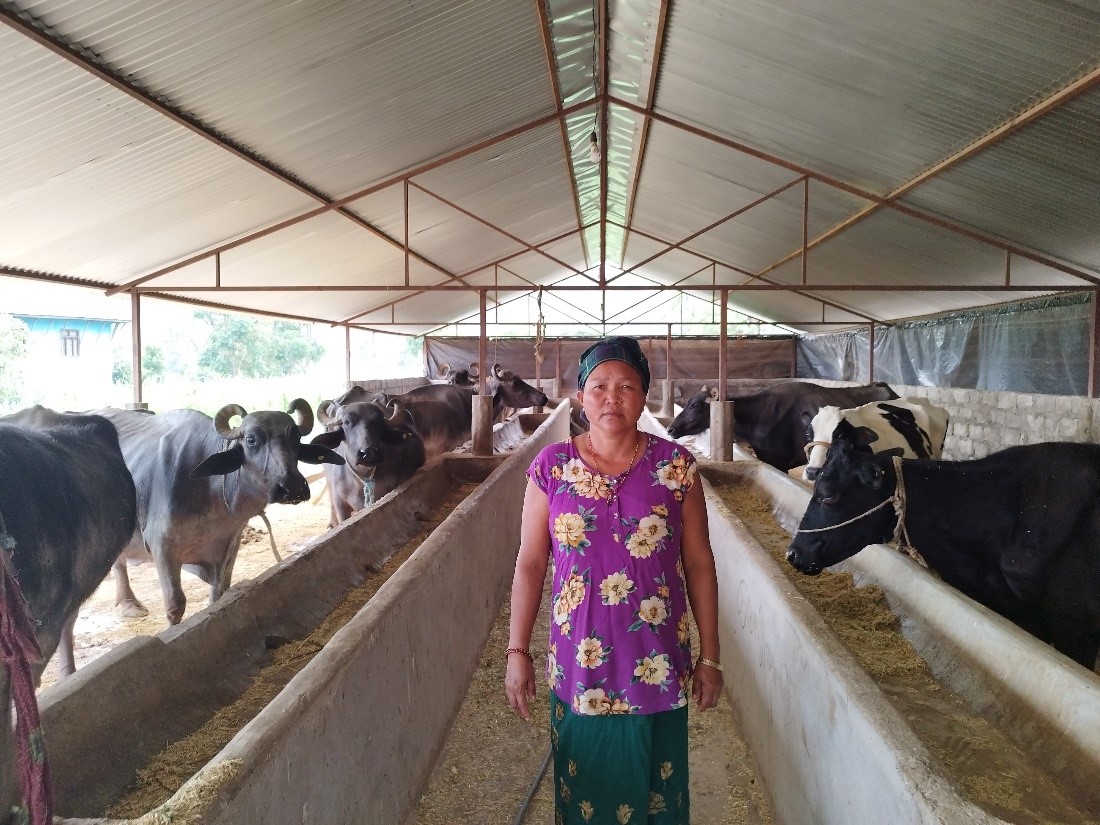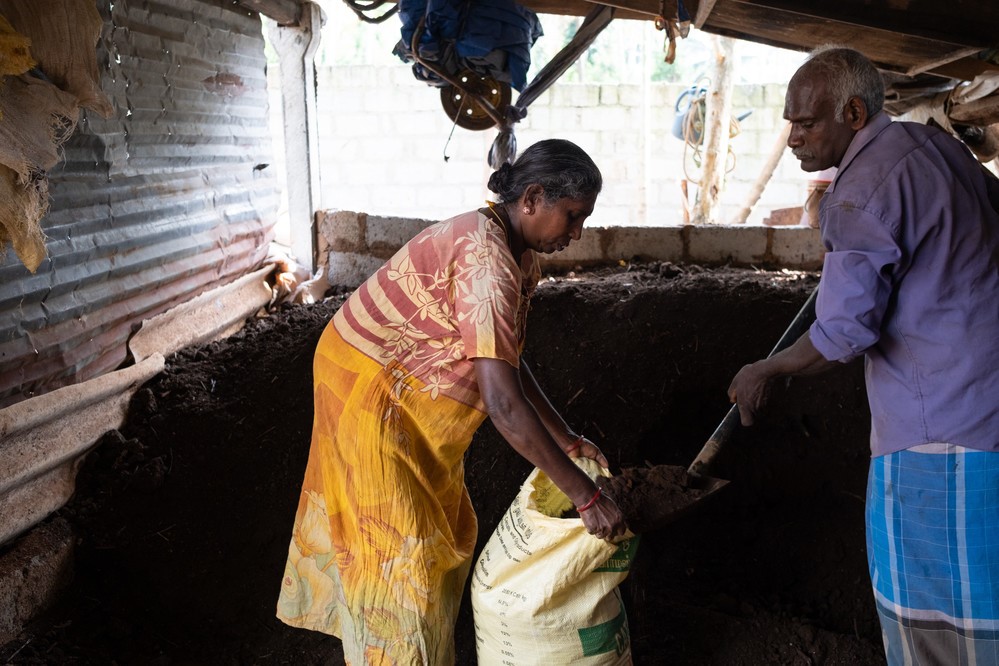Let's raise a glass to South Asia’s dairy farmers
IFAD Asset Request Portlet
Asset Publisher
Let's raise a glass to South Asia’s dairy farmers
Estimated reading time: 3 minutes
Milk is one of the most widely produced agri-products on the planet. It’s also a crucial source of income for at least 500 million poor people, who depend on milk for their livelihoods.
As much as 80 per cent of the milk in South Asia comes from small-scale farms. That’s why IFAD works across the region to help small-scale dairy farmers optimize their production.
There are, however, significant challenges. On average, farming families in the region can only afford one to two dairy animals per household, which leaves little for sale after they have set aside milk for their own needs. And when they do have excess, they’ve often nowhere to sell it because of limited market access. They’re also confronted with limited credit and training, poor access to inputs, like feed, and low labour productivity.
Nothing goes to waste
Such was the case for Tasleem Bano in Chikas, northern Pakistan. When she happened to have extra milk, she had to throw it away, as she had nowhere to sell or store it.
Then, in 2017, she heard of the Economic Transformation Initiative, an IFAD-funded project that ensured the collection of milk from farmers’ doorsteps twice a day, in addition to teaming up with a private sector partner and setting up nearby collection centres, where farmers like Tasleem could sell excess milk.
“Now instead of it being wasted, I can sell the excess milk,” says Tasleem. “The extra money I make from this helps with various household expenses. I can also pay my children’s school fees.”
Milking money

Dairy farmers partnering with IFAD-supported projects are also able to access much-needed credit and expand their businesses.
Leelabai Munde used to be a cook at a public school in western India. Then she heard of the IFAD-supported Tejaswini Rural Women’s Empowerment Programme through which she obtained a loan of INR 10,000 (US$120), bought five goats and started selling their milk.
The returns were better than she ever expected. She was able to buy more lucrative buffalo, get more credit and set up her own milk and sweets shop. Today, her 25 buffaloes have helped pay for the construction of a new home.
“Earlier we used to earn as little as INR 10,000 (US$ 121) per month after all our expenses,” she says. “Now we make at least INR 50,000 (US$ 600) per month.”
Bouncing back from hardship
The COVID-19 lockdown pushed Sita Kumari Khamcha and her family in Levkashi, Nepal into crushing debt.

But after receiving training in rearing livestock and getting access to credit through the Agriculture Sector Development Programme, she bought two buffaloes and set up her own business. In just one year she grew her stable to eight buffaloes, three cows and one calf. Every morning and evening, she sells enough milk to a local cooperative to make around NPR 100,000-150,000 (US$ 756-1,000) per month.
Through her earnings, the family was able to clear their debt and buy a car, which Sita’s husband now uses to drive customers and make some extra cash “Even if I can’t read, now I can earn respect as a successful farmer,” says Sita. “I’ve learnt that if we can make a small investment in the right way, big success can be achieved through business.”
The importance of fodder

Good fodder makes for healthy animals and learning how to cultivate it well is key to a farmer’s success.
In Sri Lanka, Samantha Weerasooriya received training on fodder from the IFAD-supported Smallholder Agribusiness Partnerships Programme. As a result, he was able to expand from one cow in 2017 to 10 cows today and plans to set up a yogurt production facility.
Similarly, in Bangladesh the Rural Enterprise Transformation Project is helping farmers, like Mirza Ifte Khairul Hossain, improve the quality and quantity of their feed, which in turns makes for better and more milk.
“In just two years I have built my own brand,” Mirza says. “I produce 450 litres of packaged milk per day. I dream of delivering my packaged milk across the entire country one day."
For these farmers, milk is truly nature’s elixir. For them, dairy is not only a nutritious source of food, but it can chart a path out of poverty for rural people.
Publication date: 01 June 2023